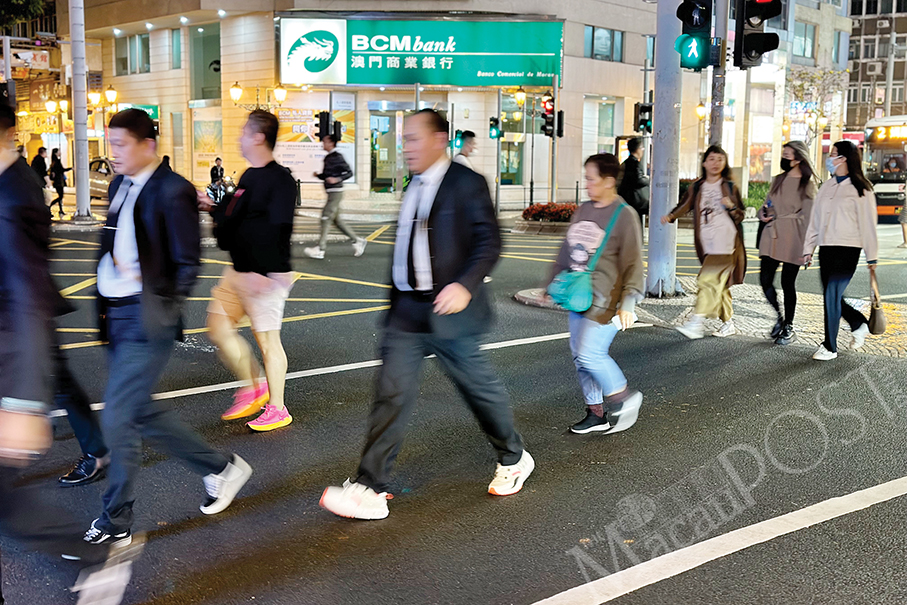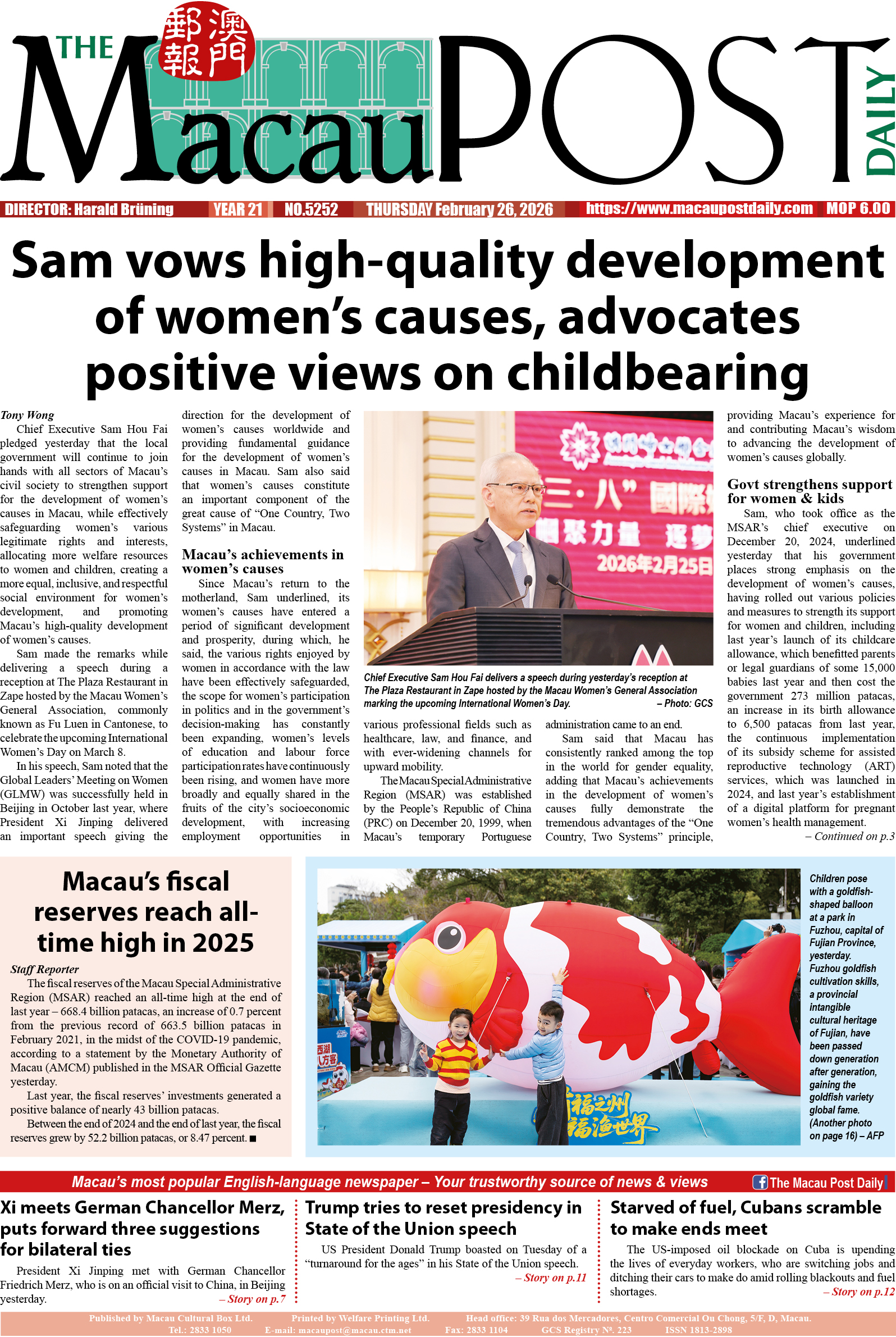The Health Bureau (SSM) announced yesterday that it will raise the fees by 800 percent, or ninefold, for its childbirth services at the public Conde de S. Januario Hospital Centre for non-local women whose husbands are also non-locals.
The bureau said that the drastic fee hike aimed to reduce the number of non-local women using the public hospital’s childbirth services, in order to ensure a better service for their local counterparts.
The bureau made the announcement during a press conference at the public hospital. The press conference was co-hosted by SSM Deputy Director Ho Ioc San and senior SSM official Chong Ut Nun.
Ho said the increase in the fees will not affect non-local pregnant women whose husbands are local residents – the fees for this group of women will remain unchanged.
The press conference did not clarify the bureau’s stance on the situation when the father is a local resident who, however, is not married to the expecting mother.
According to Ho, the fee for natural childbirth will be increased by 800 percent from 975 patacas to 8,775 patacas for non-resident workers, while the fee for caesarean section will also be raised by 800 percent from 1,950 patacas to 17,550 patacas.
The fee for natural childbirth will be increased from 1,950 patacas to 17,550 patacas for other non-locals – namely tourists, while the fee for caesarean section will be raised from 3,900 patacas to 35,100 patacas, both up 800 percent as well, according to Ho.
According to Ho, her bureau’s proposed new charging scheme for the public hospital’s childbirth services for non-local pregnant women whose husbands are also non-locals will be formalised by an executive order to be issued by Secretary for Social Affairs and Culture Alexis Tam Chon Weng. She did not say when Tam was expected to issue the order; neither did she say when the new fees were slated to take effect.
Ho noted that the mainland authorities implemented their two-child policy in January 2016, adding that Macau’s hitherto low fees for the childbirth services for non-locals charged by the public hospital could result in more pregnant women from the mainland choosing to give birth here. She said this was why her bureau is proposing the new charging scheme to ensure the quality of the public hospital’s childbirth services for local residents.
According to Ho, 3,371 babies were born per year on average between 2015 and last year, with 28 percent of them born to non-locals – 20 percent were tourists, while eight percent were non-resident workers.
Ho noted that the public hospital has not adjusted its fees for its childbirth services for almost 20 years and that the fees are much lower than those charged by its counterparts in the private market.
Ho said that the ninefold increase would raise the public hospital’s fees to about the same as those charged by the city’s private hospitals.
Ho noted that the government has received complaints from many residents that non-local pregnant women have been using local healthcare resources, crowding their local counterparts out.
Ho pointed out that her bureau has consulted a number of community associations on its new charging scheme, including the Macau Women’s General Association (Fu Luen), Macau General Union of Neighbourhood Associations (Kai Fong), Macau Federation of Trade Unions (Gung Luen) and Alliance for Common People Building Up Macau (API). Ho said that all the groups supported the fee hike for non-locals.
According to government broadcaster TDM, Ho said that her bureau did not consult any of the local groups representing non-resident workers because they could have been expected to reject the fee hike anyhow. “If we had asked them for their views, they would clearly have been against it. No one likes [fee] increases,” she reportedly said.

Health Bureau (SSM) Deputy Director Ho Ioc San (left) and SSM senior official Chong Ut Nun address yesterday’s press conference about the bureau’s proposal to raise the public hospital’s fees for non-locals’ childbirth services, at Conde de Sao Januario Hospital Centre.Courtesy TDM
PLEASE READ THE FULL ARTICLE IN OUR PRINT EDITION.









